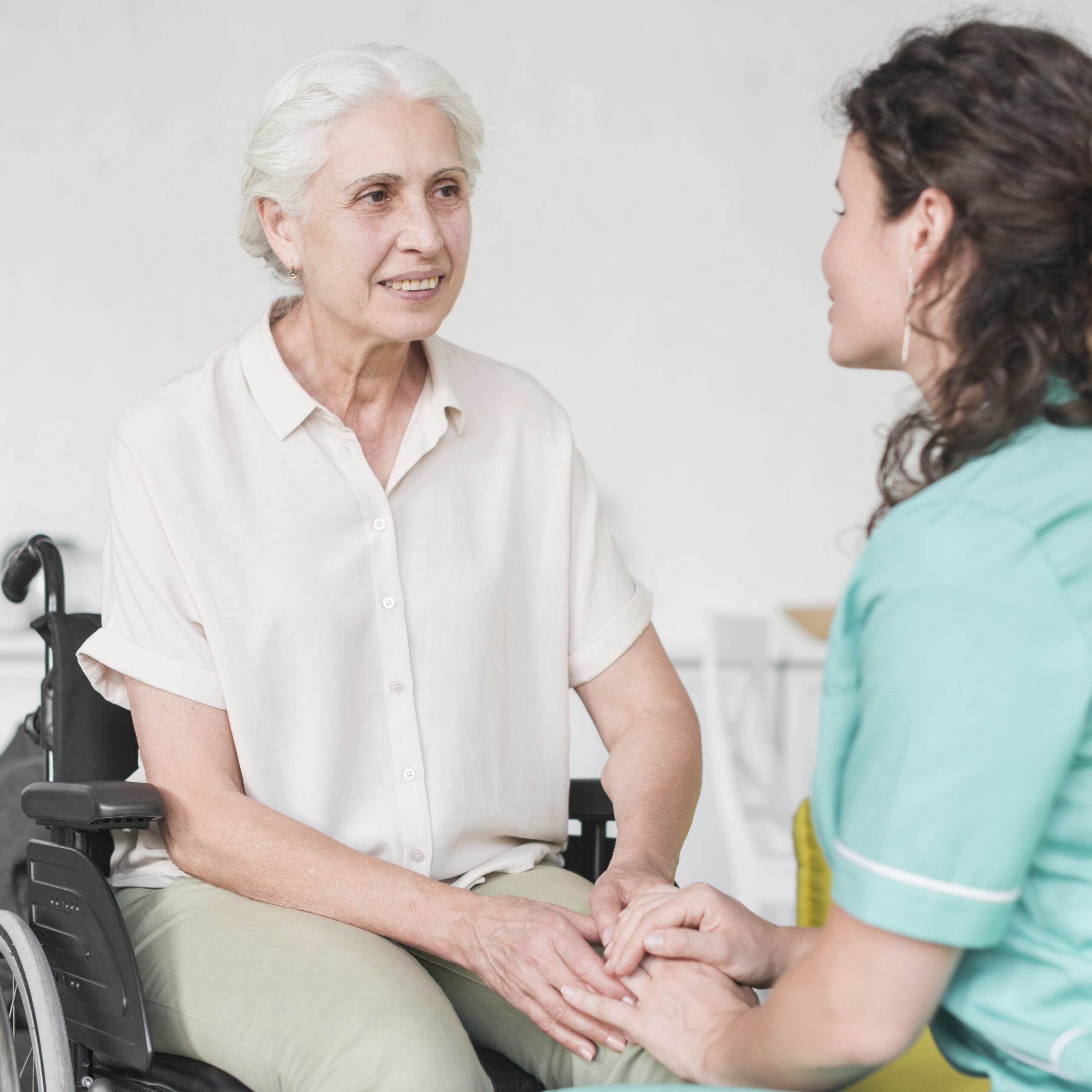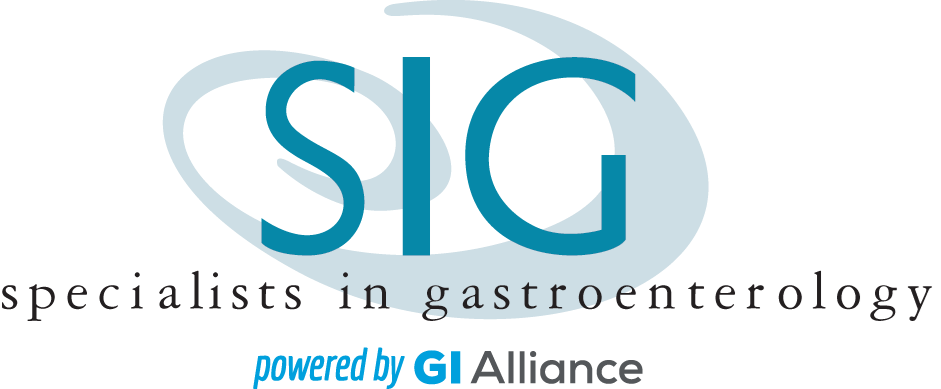Colonoscopy in St. Louis, MO
What is a colonoscopy?
A colonoscopy is an endoscopic procedure where a long, flexible tube known as a “scope” is inserted into the rectum and guided through the entire colon (large intestine). This scope is equipped with a light and camera, enabling the physician to visually inspect the colon’s lining.
Colonoscopies are often used to diagnose gastrointestinal issues like diarrhea, bleeding, abdominal pain, or abnormal x-ray results.
Additionally, a colonoscopy can be performed on asymptomatic patients starting at age 45 or earlier, depending on their medical history, to screen for colon cancer and polyps. It remains the only available method for colorectal cancer prevention. At Specialists in Gastroenterology, board-certified GI providers are highly skilled in performing colonoscopy exams. For more information, please contact a St. Louis, MO office near you.

What are the benefits of a colonoscopy?
Colonoscopy exams are the gold standard for preventing colon cancer. It is essential for individuals over 45 or those at higher risk to follow their physician’s recommendations for these screenings. Regular colonoscopies provide numerous benefits for both gastrointestinal and overall health. Key advantages of colonoscopy exams include:
- Early detection of colon and rectal cancer
- Identification and removal of abnormal growths
- Diagnosis of conditions like diverticulosis, inflammatory bowel disease (IBD), and more
- Serving as the most effective screening method for colon and rectal cancer
- Potentially life-saving outcomes
Thanks to advancements in technology, colorectal cancer screenings are now performed more quickly, comfortably, and accurately than ever before.
What happens during a colonoscopy?
Before your colonoscopy, your GI provider at Specialists in Gastroenterology will provide detailed instructions for bowel preparation. Typically, this involves consuming clear liquids the day before the procedure and taking specific laxatives to thoroughly cleanse the colon. It is crucial to adhere to these instructions carefully. Additionally, you will receive guidance on your medications; most should be continued as usual, but special instructions will be given if you are on blood thinners (e.g., Coumadin, warfarin, Plavix, aspirin, anti-inflammatories) or if you have diabetes. You should not consume anything by mouth after midnight except for necessary medications.
On the day of your exam, arrive at the endoscopy center at your local Specialists in Gastroenterology location 1 to 1.5 hours before your scheduled time. This allows for paperwork completion and preparation. You will change into a medical gown, and an intravenous (IV) catheter will be inserted into your arm to administer sedation. You will be connected to monitors that track your heart rate, blood pressure, pulse, electrocardiogram, breathing, and oxygen levels throughout the procedure.
In the exam room, you will lie on your left side on a stretcher. The IV sedation will begin, administered in small doses to ensure your safety and comfort. Once adequately sedated, the physician will conduct a rectal exam and gently insert the colonoscope into your rectum. The scope will be advanced through the colon to the junction with the small intestine. Air will be introduced through the scope to expand the colon, providing a clear view for the physician. Any remaining fluid in the colon can be rinsed and suctioned out through the scope.
During the procedure, which lasts about 15 to 30 minutes, depending on the findings, the physician may perform biopsies, remove polyps, and control any bleeding. Afterward, as much air and remaining fluid as possible will be suctioned out of the colon.
When will I get my colonoscopy results?
After your colonoscopy, you will be taken to the recovery room to be monitored as the sedation wears off. The amount of sedation and your individual response to it will determine how quickly you wake up, but most patients are alert enough to be discharged within 45 to 60 minutes.
You will not be allowed to drive for the rest of the day, so you must arrange for someone to take you home. Additionally, you should avoid work, signing important documents, or engaging in strenuous activities for the remainder of the day. Most patients can resume eating and drinking normally after discharge, but you will receive specific instructions regarding activities, diet, and medications before you leave.
Following the procedure, the doctor or nurse will discuss the findings with you. Due to the effects of sedation, most patients may not remember this discussion, so it’s advisable to bring someone with you to help recall the information. You will also receive a written report to take home. If biopsies were taken, you would be informed of the results within a week.
Are there alternatives to a colonoscopy?
The alternatives to a colonoscopy largely depend on why the procedure is needed. While a colonoscopy is the most effective method for evaluating and treating abnormalities in the colon, and the only preventive measure for colorectal cancer, there are other diagnostic options. These include x-rays like a barium enema and a virtual CT scan, which can assess the colon. However, these are purely diagnostic tools, and any identified abnormalities will still require a colonoscopy or surgery for treatment.
What are the risks of a colonoscopy?
While generally safe, a colonoscopy does carry some risks, though complications occur in less than 1% of patients. Most issues are not life-threatening but could require hospitalization and surgery. Before the procedure, you will review a consent form with the nursing staff and have the opportunity to discuss any concerns with your physician.
The medication used for sedation causes reactions, including allergic responses, breathing difficulties, changes in heart rate and blood pressure, and irritation at the injection site.
There is a risk of bleeding, especially if biopsies are taken, or polyps are removed. Significant bleeding, which might necessitate a blood transfusion or hospitalization, is rare. However, bleeding can occur during the procedure or up to two weeks afterward if a polyp is removed.
There is also a risk of a colon perforation or puncture, which might be detected during the procedure or later. Most perforations require surgery and hospitalization, but this complication is uncommon, even when polyps are removed.
It is crucial to contact your doctor immediately if you experience worsening abdominal pain, bleeding, or fever after the procedure.
Like any medical test, a colonoscopy is not foolproof. There is a small risk that abnormalities, including polyps and cancers, can be missed. It is essential to follow up with your doctor at Specialists in Gastroenterology as instructed and report any new or persistent symptoms.

The gold standard for colon cancer screening
Colonoscopy FAQs
By what age should you undergo a colonoscopy screening?
We suggest individuals who are at standard chance for colon cancer start scheduling their colon cancer screening when they turn 45 years old. In the event your odds for getting colon cancer are more likely or you are presenting distressing symptoms of colon cancer, your GI doctor could advise a colon cancer screening prior to that age.
How many years apart is it suggested you have a colonoscopy?
GI doctors suggest getting a colonoscopy screening about every ten years for patients who have average risk, who are in favorable health, and when they have colonoscopy test results that are normal. Following your colonoscopy, your GI doctor will inform you how many years apart you should schedule colon cancer screenings from here on out.
v
Is my colonoscopy going to be an uncomfortable procedure?
Sedation will be given to you ahead of your colonoscopy to maximize your comfort and relaxation while undergoing your exam. Based on the type of sedation given, most individuals will be in an extremely tranquil state or even become drowsy, and many experience virtually no memory of what happened. You can talk with your gastroenterologist about what you can experience during your consultation.
What’s the average recovery period for a colorectal exam?
Most of the time, it takes around a full 24 hours to recover after a colonoscopy screening, and a number of people feel well enough to start their normal routine the subsequent day. When colon or rectal polyps are found and removed, the recovery time will likely take about a week. It is expected to notice a bit of gastrointestinal symptoms following a colon cancer screening, including cramping and bloating. Our Specialists in Gastroenterology providers will give you more details on what is normal during the recovery period.
